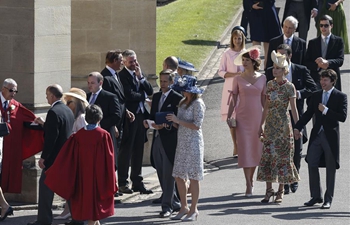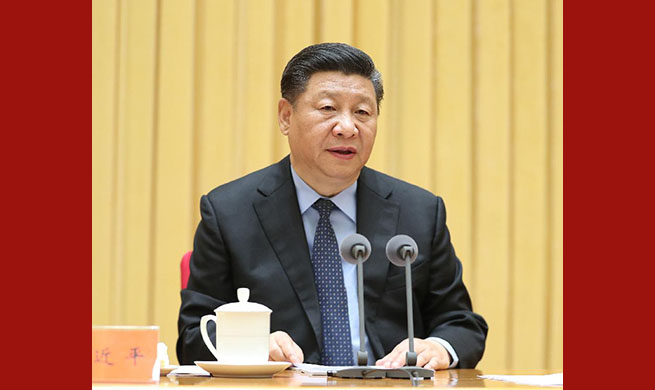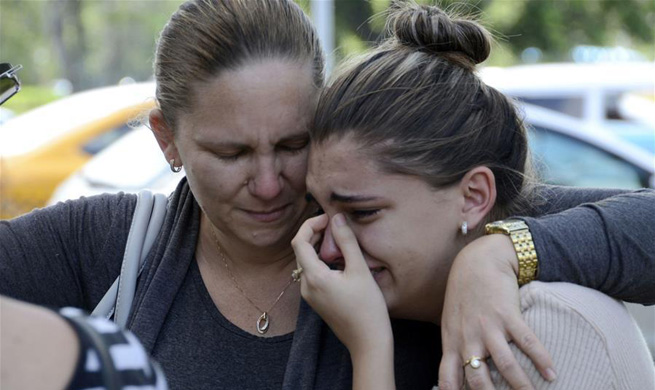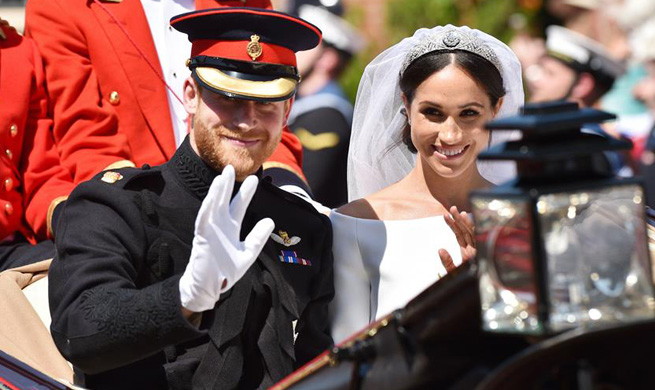ANKARA, May 19 (Xinhua) -- As Turkey's general elections looming, People's Alliance established by the ruling Justice and Development Party (AKP) and the Nationalist Movement Party (MHP), as well as opposition parties, are both aiming at a parliament majority.
Turkey's opposition parties develop a strategy to win at least 301 lawmakers in the 600-seat parliament in the upcoming general elections, in a bid to proceed the presidential election to a second round, local experts said.
The opposition parties' first goal is winning more lawmakers and have enough quorum, said Kemal Ozkiraz, former chairman of Eurasia Research Center and now parliament member nominee for main opposition Republican People's Party (CHP).
The opposition parties will run their own candidates for the first round of the presidential elections, he said, adding that the polls will see second round if no candidate receives more than 50 percent of the votes in the first round.
The opposition parties then will support the highest-polling candidate among their nominees, the expert said.
CHP's leader Kemal Kilicdaroglu has been working on this strategy for the past three months, he said.
The upcoming presidential and parliamentary elections on June 24 sees intense alliance and cooperation efforts focused on competition mainly between two blocks.
The main opposition CHP, the IYI (Good) Party, the Felicity Party (SP) and the Democrat Party (DP) compose an alliance running against the People's Alliance.
The ruling party passed a legislative change and made pre-election alliances possible for upcoming elections. Hence the 10 percent election threshold will be calculated based on the sum of votes of all parties in an alliance.
The opposition block constitutes of the "No" block members in the 16 April referendum last year, which passed with 51.41 percent of vote the change from a nearly century-old parliamentary system to an executive presidency.
Only pro-Kurdish People's Democratic Party (HDP) is not part of the opposition alliance. Although they have not declared a position for the second round of presidential elections, it will not be a surprise if the party lends support to the opposition block.
However, if the HDP can not exceed the election threshold, then the ruling AKP will receive almost 70 more seats at the parliament, putting the opposition block's plans for the majority at risk.
If the opposition block wins majority in parliament in June 24, they will gain the psychological upper hand for the second round of presidential elections on July 8.
According to the CHP, all opposition parties must be in parliament, Gul said, adding therefore some small parties with threshold problem could take part in the CHP's candidate lawmakers list for the parliament.
One crucial outcome of opposition alliance is that it is not about overcoming the electoral threshold, but the alliance has turned the June 24 elections into a second referendum on the country's regime model, Sedat Ergin, daily Hurriyet columnist wrote.
The elections are a turning point for the AKP and its leader President Recep Tayyip Erdogan as well. The AKP and the MHP have already endorsed Erdogan as their candidate for president and are set to focus on preparing lists of potential lawmakers and campaigning strategies.
Leader of the AKP President Recep Tayyip Erdogan, the prime minister from 2003 to 2014, has been serving his post as Turkey's first popularly-elected president.
If he wins the June 24 election, Erdogan will be the country's first leader under the executive presidency system.
Erdogan has two targets at the elections, according to Abdulkadir Selvi, daily Hurriyet columnist.
One is to win the presidential elections overwhelmingly at the first round, he said. For the general elections, Erdogan wants the MHP-AKP alliance get a majority which will enable any constitutional change, Selvi said.
The upcoming presidential and parliamentary elections will be also determined by young voters, as there are 1.5 million new, young voters who will be participating in the elections for the first time on June 24.
The referendum held on April 16, 2017, which paved the way for constitutional amendments, lowered the minimum age of eligibility for Parliament from 25 to 18.
It is believed that interest in the elections among young voters will increase, and participation of young people in politics will rise as well.

















